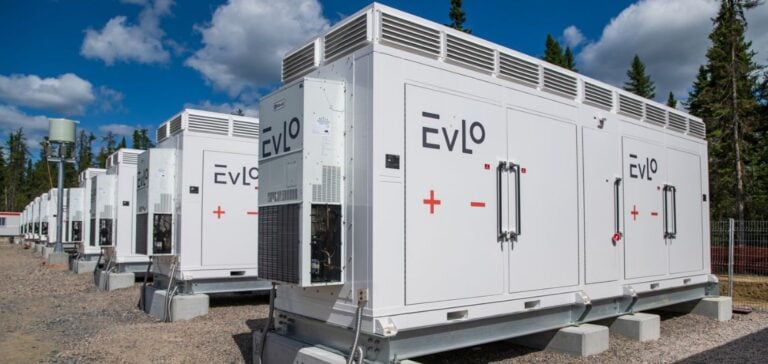Virginia is pursuing its energy transition goal with the implementation of 300 MWh of energy storage capacity supplied by EVLO Energy Storage Inc. a subsidiary of Hydro-Québec.
These projects, scheduled for 2025 and 2026, are part of the Virginia Clean Economy Act (VCEA), legislation enacted to transform the electric grid to achieve 100% clean energy by 2050.
Strategic storage for grid stability
The first project concerns a 5 MWh microgrid combined with a solar installation.
The aim is to test and develop solutions to improve energy management in a context of renewable production.
This microgrid will serve as an experimental platform for optimizing the integration of renewable energies into the existing grid.
A second project, with a capacity of 75 MWh, will enhance the reliability of the local grid.
It will enable excess energy to be stored during periods of low demand and released during peaks in consumption, thus contributing to grid stability and efficient energy management.
Expansion of storage infrastructures
The third project, planned to be the largest at 225 MWh, will be integrated into a major transmission hub in Virginia.
This storage infrastructure will play a key role in the efficient use of solar energy, maximizing the use of renewable resources and meeting grid requirements for flexibility and energy security.
These three initiatives demonstrate Virginia’s commitment to modernizing its energy infrastructure while complying with the legal requirements imposed by the VCEA.
The aim is to ensure optimal management of renewable energy, improve energy security and guarantee a continuous supply of electricity for industrial and commercial users.
System security and compliance
The EVLO storage systems integrated into these projects comply with the most stringent safety standards, including UL 9540 certification, which is the North American standard for grid-connected batteries.
System design includes active and passive safety measures to prevent fire hazards, ensuring safe and reliable operation.
By relying on robust, secure technological solutions, Virginia is positioning itself to achieve its energy transition goals without compromising the stability of its grid.
These energy storage projects are not only essential to meet current energy needs, but also to prepare the state for future energy management challenges.






















